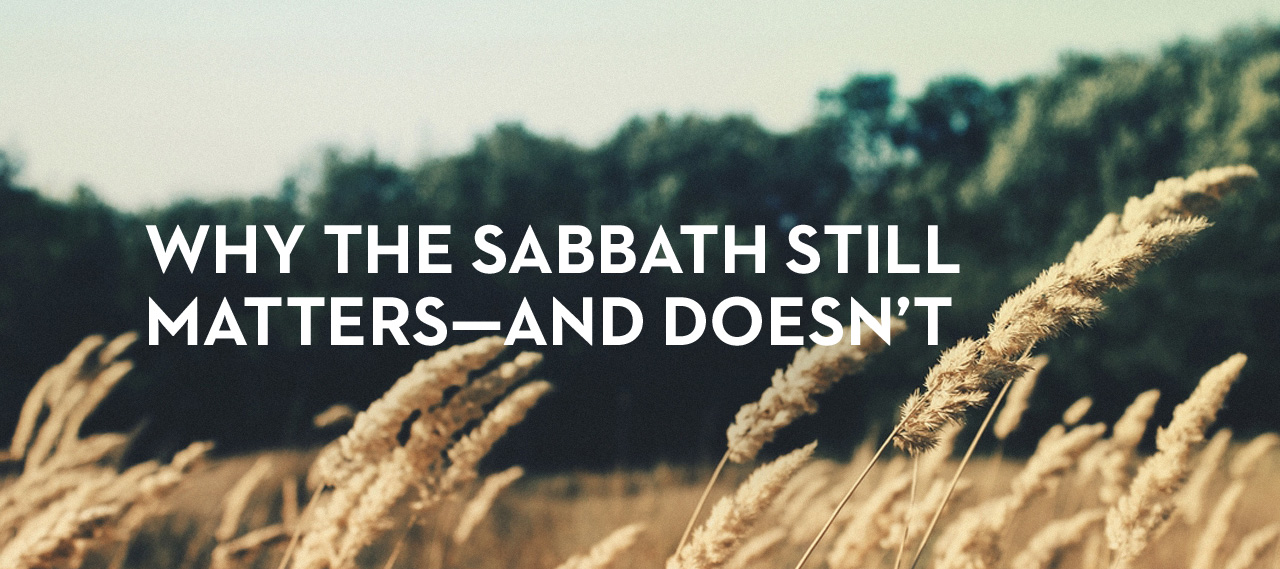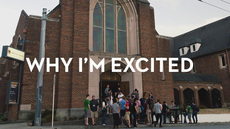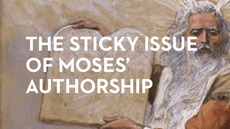“Those who followed ancient customs [the Jews] have come to a new hope, no longer celebrating the Sabbath but observing the Lord’s Day, the day on which our life sprang up through Christ.” –Ignatius of Antioch (ca. 35–107)
In the fourth commandment, God institutes the Sabbath, the day of rest:
Remember the Sabbath day, to keep it holy. Six days you shall labor, and do all your work, but the seventh day is a Sabbath to the Lord your God. On it you shall not do any work, you, or your son, or your daughter, your male servant, or your female servant, or your livestock, or the sojourner who is within your gates. For in six days the Lord made heaven and earth, the sea, and all that is in them, and rested on the seventh day. Therefore the Lord blessed the Sabbath day and made it holy. Exodus 20:8–11
Christians today tend to overlook how absolutely essential and central the Sabbath was for God’s people in the Old Testament. For a few thousand years, they celebrated the Sabbath with absolute devotion. Life, commerce, and worship orbited around it. It was the centerpiece of the week.
The Bible’s emphasis on the Sabbath raises all kinds of questions for Christians today. Should we observe the Sabbath? If so, on what day and in what way? How does it apply to us—if at all?
What is the Sabbath?
The fourth commandment is a bridge between the first three commandments (which relate to our worship of God) and the last six commandments (which relate to our worship of God as demonstrated by loving others). The fourth commandment fuses together our theological relationship with God and our social and ethical relationships with others.
The fourth commandment is about rest, but it’s also about work. God prescribes six days for work and one day for Sabbath. For 21st century Americans accustomed to the two-day weekend (which I’ll get to in a bit), six days of work may sound like a lot. But put yourself in the sandals of the ancient Israelites, who suffered under Pharaoh’s whip. Slaves don’t get a day off. If you’ve been working for four centuries straight, one day of rest in every seven sounds like welcome relief.
In the Old Testament, starting with the creation account of God’s work and rest in Genesis, God establishes the idea that our lives should have a rhythm, and each week should have time for labor and time for rest. The matter of Sabbath is so imperative that anyone who refuses to rest has refused to worship God, refusing to acknowledge that all of our labors are ultimately dependent solely on his hand. The penalty for working on the Sabbath could be as severe as death.
By addressing both labor and rest, the command to Sabbath confronts two of the most common idols of our day, work and comfort. Some of us worship comfort: we rest too much and try to work as little as possible. Some of us worship work: we work too much and rest too little. The fourth commandment teaches us that we are not to live our lives for comfort, play, and recreation—or define our lives by our work. Instead, we are to work hard and rest regularly in worship to God.
Is Saturday or Sunday the Sabbath?
God created the world in six days and rested on the seventh (Gen. 2:2). Likewise, God commanded his people to work six days and then rest on the seventh (Gen. 2:2; Exod. 20:8–11). For thousands of years, God’s people rested from their labors and worshiped their God on Saturday.
So why do Christians worship on Sunday?
The early church abruptly changed the day of worship to Sunday to commemorate the resurrection of Jesus from death on the “first day of the week.” John called this “The Lord’s day” in Revelation 1:10.
As a faithful Jew, Jesus observed the Sabbath (not including the extraneous Sabbath rules made up by the religious leaders). But everything changed when he was crucified on a Friday and then rose from the dead on a Sunday.
In Jesus, the old covenant law was fulfilled, the new covenant arrived, and everything that was anticipatory and preparatory for the coming of Jesus was fulfilled in the resurrection of Jesus.
Spiritually speaking, the whole world changed, and now all things are in the process of becoming new through Jesus. A new day represents the new reality that was brought into being through the resurrection of Jesus. To mark the monumental importance of this event, the early church broke from thousands of years of tradition and started worshiping on Sunday instead of Saturday.
At the time, however, Sunday was like our Monday. It was the day everyone returned to work after a day off. Consequently, the early church would have likely had to gather for worship either in the morning or evening. This remained the case until Emperor Constantine instituted Sunday as an official day of rest in A.D. 321. But for the early church, Sunday was a day devoted primarily for worship, not rest.
Is the Sabbath binding on Christians?
A debate has long raged between Christian scholars. On one side, some say that the Sabbath was instituted by God in creation and is therefore binding upon Christians. Others believe that the Sabbath was instituted by God in the Law of Moses and was therefore fulfilled in Jesus and is no longer binding upon Christians. How we answer this question depends on how we interpret the Old Testament law.
Jesus said in Matthew 5:17, “Do not think that I have come to abolish the Law or the Prophets; I have not come to abolish them but to fulfill them.” The whole law is fulfilled by Jesus. Romans 10:4 says, “Christ is the end of the law for righteousness to everyone who believes.” And in Galatians 3, Paul uses the analogy that the Old Testament law is like a guardian, or a school teacher. The law helps us see our sin and our need for a Savior so that when the Savior arrives, we understand that apart from him we’ll never meet the demands of the law.
Although Jesus met the requirements of the Old Testament and the law is therefore no longer binding on Christians, some moral laws are repeated in the New Testament. Our salvation does not depend on our compliance, but these laws remain in place for our good and God’s glory.
Each of the Ten Commandments is reiterated in the New Testament, except for the command to Sabbath (interestingly, the command to work remains clear in passages like 2 Thessalonians 3:10). To further complicate the matter, if we intend to keep the Sabbath as a binding law upon Christians, we would also have to enforce the other aspects of Sabbath, such as the seventh year Sabbath to rest the land, and the fiftieth year Sabbath when prisoners were freed and debts were cancelled.
I would argue that, following Jesus’ resurrection and the establishment of the new covenant, the Sabbath moved from biblical law (like the rest of the Ten Commandments) to biblical wisdom (like Proverbs, Ecclesiastes, or James). It may no longer be a mandate, but it’s still a good idea, a gift from God to enjoy. Dedicating one day a week to rest from our labors and gather together to pray, grow friendships, attend church, take communion, and hear the Bible preached is wise and a practice of the early church.
Many legalistic attempts have been made to rob the Sabbath of its worship and joy by carefully dictating what can and cannot be done. But Jesus intentionally lived in public view to serve as a contrary model of the Sabbath distinct from that demonstrated by other legalistic teachers.
For example, Jesus healed on the Sabbath, taught on the Sabbath, and promoted evangelism on the Sabbath. Jesus demonstrated that the Sabbath was not to be enforced legalistically, but existed for worshipful fun and rest. “It is lawful to do good on the Sabbath,” he declared, and “The Sabbath was made for man, not man for the Sabbath.”
Paul spoke clearly on this issue as well. He advocated both the concept of a Sabbath and a freedom from its legalistic enforcement. “One person esteems one day as better than another, while another esteems all days alike,” he wrote. “Each one should be fully convinced in his own mind. The one who observes the day, observes it in honor of the Lord.” He states that the day of our worship is a debatable matter that we should not codify, since the main thing is who we worship, not when we worship.
Who is the Sabbath?
Jesus has not only fulfilled the Sabbath in a legal sense, he has also fulfilled it in a deeper sense. Jesus is the ultimate source of true Sabbath rest, relieving our burden of sin and providing peace to our souls.
“Come to me, all who labor and are heavy laden,” Jesus said, “and I will give you rest. Take my yoke upon you, and learn from me, for I am gentle and lowly in heart, and you will find rest for your souls.” Our work is finished in Jesus, and this great truth echoes throughout the remainder of Scripture:
- In Romans 4:5, Paul teaches that our salvation comes not in our labors to achieve it, but instead in our resting in Jesus by faith. In this way, the Sabbath is a time of remembering the truth of the gospel.
- In Colossians 2:16–17, Paul reminds Christians to “let no one pass judgment on you in questions of . . . Sabbath. These are a shadow of things to come, but the substance belongs to Christ.” The purpose of the Sabbath was to help us recognize true rest in Jesus.
- In Hebrews 3:12–19, we learn that God’s people wandered in the desert for forty years because they “heard and yet rebelled” (3:16). Due to their unbelief, “they would not enter his rest,” or Sabbath (3:18–19). The implication is that those who “fall away from the living God” will never enjoy rest in life or eternity (3:12).
- Hebrews 4:1–13 pleads with us to be careful that we do not fall short of salvation by failing to respond to the preaching of the gospel with faith and thereby miss out on rest in this life and the life to come.
Our rest in this life comes in our security in Christ, confirmed by our faith, as we “strive to enter that rest” when the entire plan of God for all of human history is completed and he again makes all things new.















